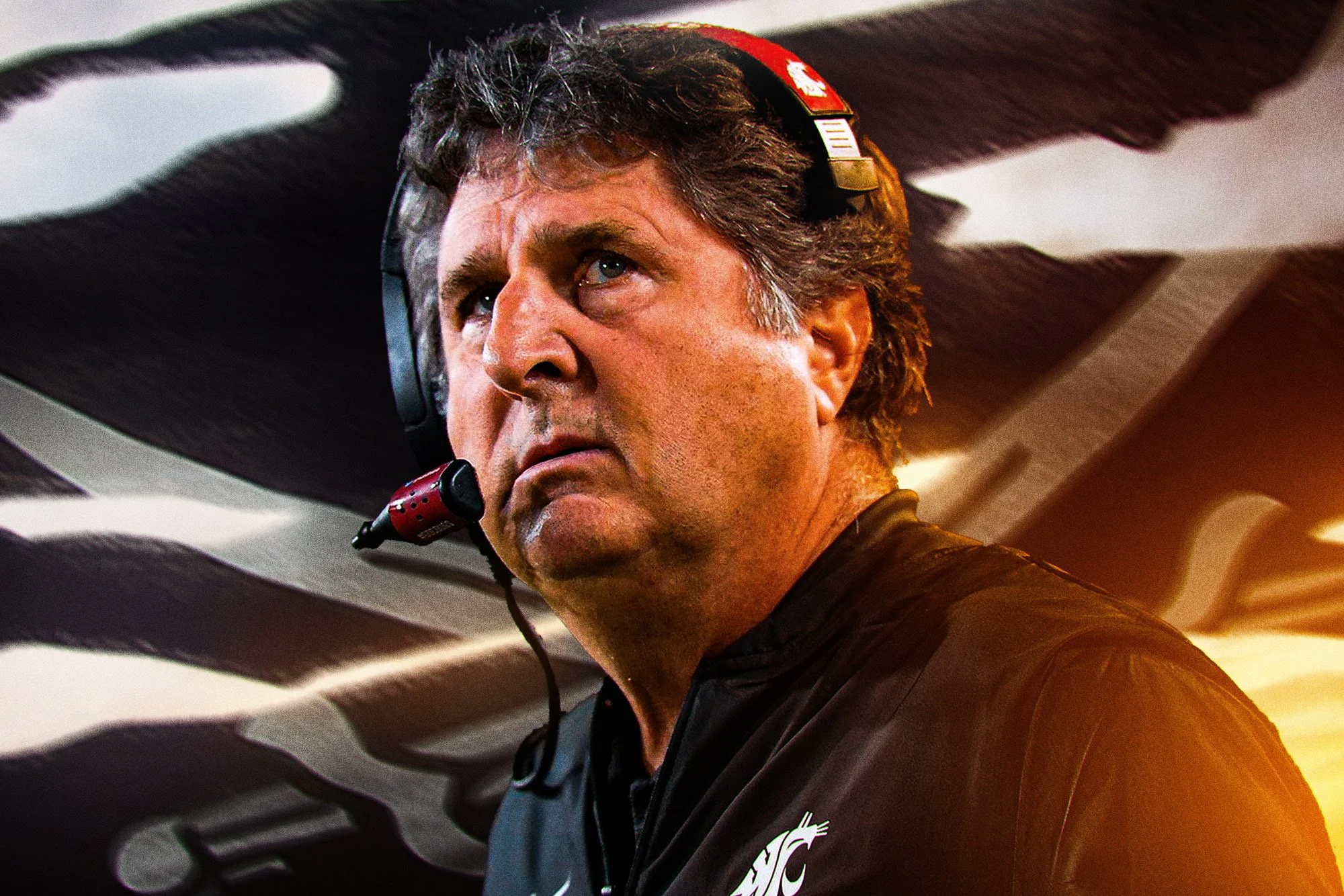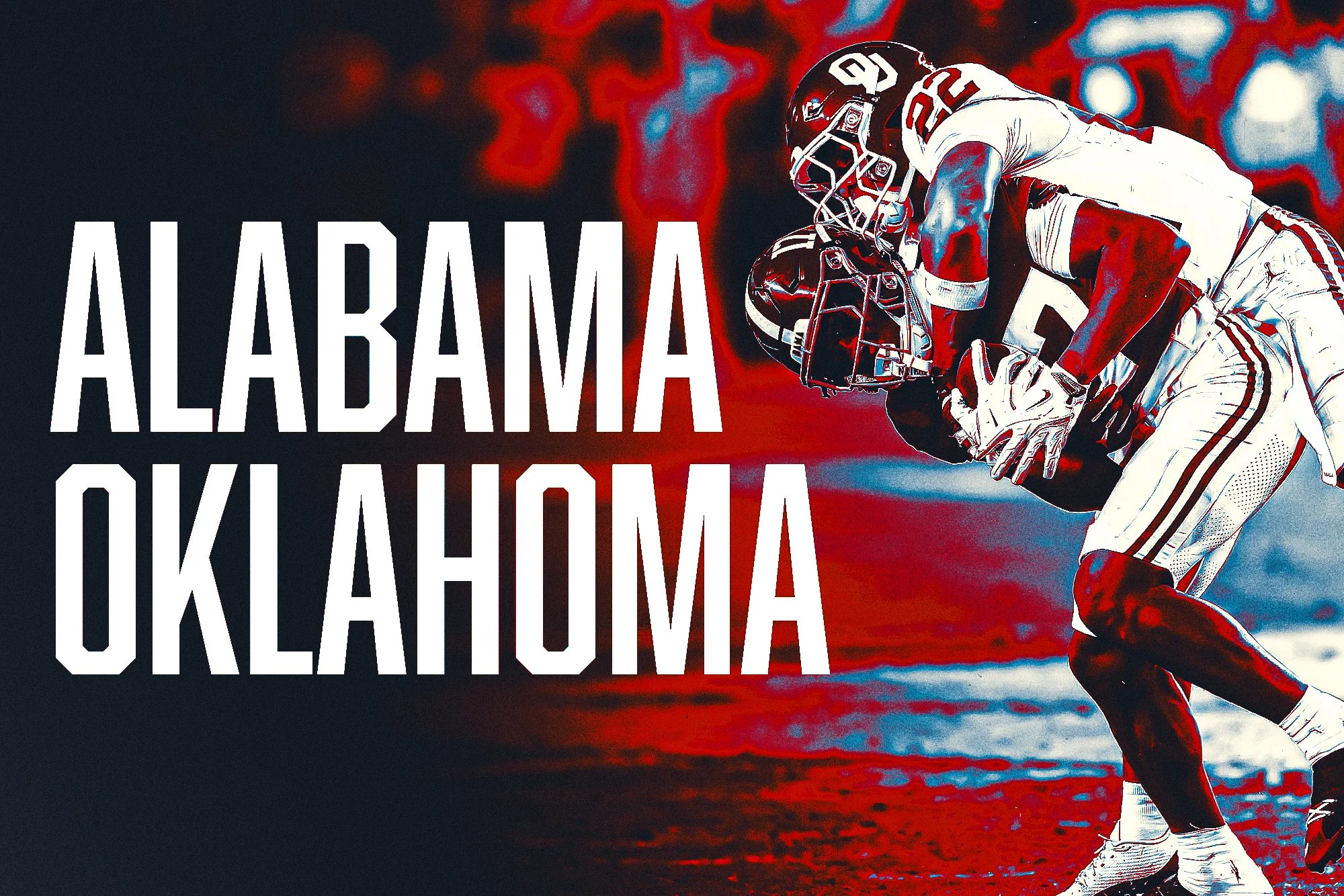UNCHARTED WATERS: HOW MIKE LEACH CHANGED CFB
Matti Tenney - September 27, 2025
If college football is The Art of War, then Mike Leach is Sun Tzu. While his 158-107 record isn't the picture of coaching excellence, what he gave to the sport changed the way we play the game to this day. Known for his quirky sayings and alternative approach to coaching, Mike Leach approached the X’s and O’s in a way that coaches hadn’t considered to be effective.
The foundation of college football is power runs. The goal of a run-heavy offense is to consistently gain chunks of yards while wearing down the defense with relentless power by the offensive line. Built around the harsh weather conditions of the Midwest, the power run was both an offensive and defensive strategy. Run the ball until the defense can stop you, throw when you absolutely have to, and on defense just stop the run. Enter: Hal Mumme and Mike Leach.
The roots of the Air Raid go back to Hal Mumme, a small-time college coach who grew frustrated with conservative offenses dominating football in the 1970s and 80s. Mumme drew inspiration from legendary minds like LaVell Edwards at BYU, who had success throwing the ball in an era when most coaches still preached the run. By the late 1980s, Mumme and his (then) assistant coach Mike Leach were experimenting at Iowa Wesleyan, a small NAIA school in Southeastern Iowa. They designed a system that would spread the field horizontally to force defenses to cover space, simplify reads so quarterbacks could make quicker decisions, throw the ball often using short passes as a substitute for the run game (often to running backs out of the backfield), and repeat concepts until players could run them in their sleep. They called it the Air Raid, and the results were immediate. At Iowa Wesleyan and later Valdosta State, Mumme and Leach turned struggling programs into stat generators.
Their big break came in the mid-1990s at Kentucky, when the Wildcats, a middle-of-the-pack SEC team, suddenly became one of the most explosive offenses in the nation. Quarterback Tim Couch thrived in the system, throwing for over 4,000 yards
in 1998 and becoming the No. 1 overall pick in the 1999 NFL Draft. While Kentucky didn’t win titles, they proved that even in the defense-heavy SEC, the Air Raid could put up points on anyone. That relentlessness made the system impossible to ignore.
When Bob Stoops hired Leach as offensive coordinator at Oklahoma in 1999, the Air Raid’s reputation only grew. OU’s offense immediately came alive, and by 2000, the Sooners won a national championship running Air Raid principles.
Also in 2000, Leach moved to Texas Tech as head coach. In his 10 years in Lubbock, he fully unleashed the Air Raid, producing high-flying quarterbacks like Kliff
Kingsbury, BJ Symons, and Graham Harrell. Texas Tech never had the recruiting firepower of Texas or Oklahoma, but the Red Raiders were able to upset blue bloods thanks to their high-flying offense. This success sparked what some have called the “Big 12 Arms Race”, where defenses seemed powerless against the wave of Air Raid-style passing attacks.
After Texas Tech, Leach carried his system to Washington State from 2012–2019, where he turned a struggling program into a consistent Pac-12 contender. His quarterbacks routinely led the nation in passing yards, highlighted by Connor Halliday’s 734-yard single-game record against Cal and “Minshew Mania” of 2018, where the Cougs would host ESPN College GameDay for the first time and end the season at 11-2. Later, at Mississippi State, Leach brought the Air Raid into the heart of SEC country once again, proving that his brand of football could work even in the league most associated with defense and power football. Meanwhile, Leach’s coaching tree spread everywhere. His former players and assistants, including Kliff Kingsbury, Lincoln Riley, Sonny Dykes, and Dana Holgorsen, brought Air Raid concepts to programs across the country, from USC to Houston to TCU.
While Leach never hoisted a national championship trophy himself, his fingerprints are all over the modern game. The Air Raid principles he helped popularize (quick passes, spread formations, simplified reads) have been adopted at every level. College programs still use it to turbocharge offenses, turning underdog teams into instant contenders. The NFL has incorporated Air Raid concepts into its playbooks, notably during the New England Patriots’ dynasty years and today’s Kansas City Chiefs offense. Mike Leach may not have the trophy case of Nick Saban or Urban Meyer, but he accomplished something arguably greater, he democratized winning. His offense proved you didn’t need five-star recruits or massive budgets to light up the scoreboard. All you needed was belief in the system, a quarterback willing to sling it, and receivers who could run their routes. The Air Raid didn’t just change how teams played, it changed how they dreamed. And for that, Mike Leach will always be remembered as one of football’s great innovators and should be in the CFB HOF.
YOU MIGHT ALSO LIKE





The air feels different this week. Not just colder, not just louder, but heavier like the past 121 Egg Bowls are pressing down on this one moment. One team is fighting for a path to the College Football Playoff, the other is fighting for its season to survive. Pride, legacy, and the Golden Egg hang in the balance, waiting to crown a hero and expose a victim. In Oxford this weekend, history isn’t just remembered, it's rewritten.